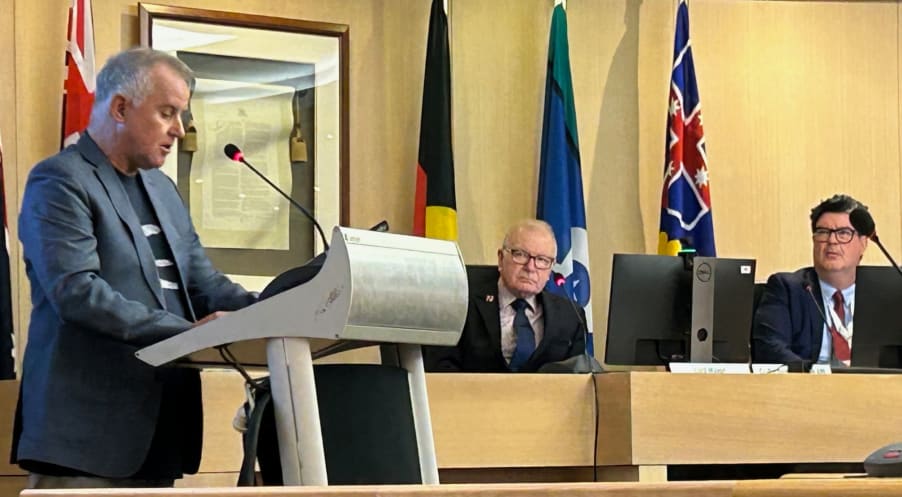Wollongong’s long-serving Lord Mayor signed off his 13 year stint this week with two warnings and a message, aimed at giving voters confidence in the Council he’s led ahead of the 14 September election.
In a September 5 column in the Illawarra Mercury, Gordon Bradbery warned us on the eve of the official start to the bushfire season that we must be prepared for the worst, as climate change makes us more vulnerable each year. There was also an early warning to swimmers hitting the surf early, that all but one (North Wollongong) of our 17 beaches won’t be patrolled till the end of the month. So be swim safe!
As the first (and only) Lord Mayor since the sacking of Wollongong Council after an ICAC investigation and the appointment of administrators, Mayor Bradbery has done a great deal to rebuild confidence in city hall. It does feel like those terrible dark days are behind us.
But there’s always room for improvement.
Council transparency
The outgoing Mayor lists as one of his proudest achievements "the level of transparency and accountability in council’s decision making" by "promoting a culture of openness within the organisation" and "provide the community with equitable access to information".
The Lord Mayor is correct when he says there’s been improved digital access, with every council meeting being webcast and able to be watched online.
But there certainly is room for improvement if our next council wants to lay claim to being a best practice organisation for openness and transparency.
Most people wouldn’t be aware that our council holds regular behind closed doors meetings (some call them secret meetings). The council calls them ‘briefings’. It is in those meetings, closed to the public and the media, where important discussions and debate is held and deliberations are made ahead of the full council meeting where decisions are formally made.
Tick and Flick Decisions
What this means is when the ‘open’ council meeting occurs a large number of agenda items are ‘ticked and flicked’ by councillors. Determined with no discussion, debate or opportunity for the public to fully understand the basis and arguments for and against the decisions. It hasn’t always been this way. In the past, sub committees existed where matters were discussed in open, public forums with no media lock out, giving everyone an opportunity to hear the briefings and debate and better understand the issues taken into account during the decision making process.
It’s probably much more than a coincidence that, 10 days ahead of us voting across the state in local council elections, the NSW Office of Local Government (OLG) has released a discussion paper titled: ‘Councillor conduct and meeting practices’.
Current weaknesses
In the OLG paper, which is now open for public comment, it says under ‘Weaknesses of the current framework’ that "Communities and councillors report that council decision making is not transparent – with decisions being seen as made behind closed doors, information not being provided or withheld, too much use of closed to the public briefings or councils going into closed sessions for no adequate rationale."
In the OLG paper it also says under the heading ‘Options for a better approach’: "Ensure the community can observe local democratic processes by banning closed to the public briefing sessions, while at the same time restoring the dignity and prestige of the council chamber."
The discussion paper goes on to say: "To promote transparency and address the corruption risks identified by the ICAC that can arise from a lack of transparency, it is proposed that councils will no longer be permitted to hold pre-meeting briefing sessions in the absence of the public."
Arguments for and against closed meetings
Some seeking re-election for council next weekend have been supporters of the closed meeting briefings. Whether their rationale is for greater efficiency and expediency of decision making, the OLG suggests this practice makes for a less transparent governance model.
The OLG seeks submissions, from the public and from councils until 15 November. Visit the OLG website for more information.
It will be interesting to read Wollongong City Council’s submission and what final conclusion the NSW Government reaches on future ‘Councillor conduct and meeting practices’.
About the writer
As a journalist with ABC Illawarra and chief of staff for WIN News Wollongong, Jeremy Lasek covered Wollongong City Council extensively over many years, and long before there were private briefings.







